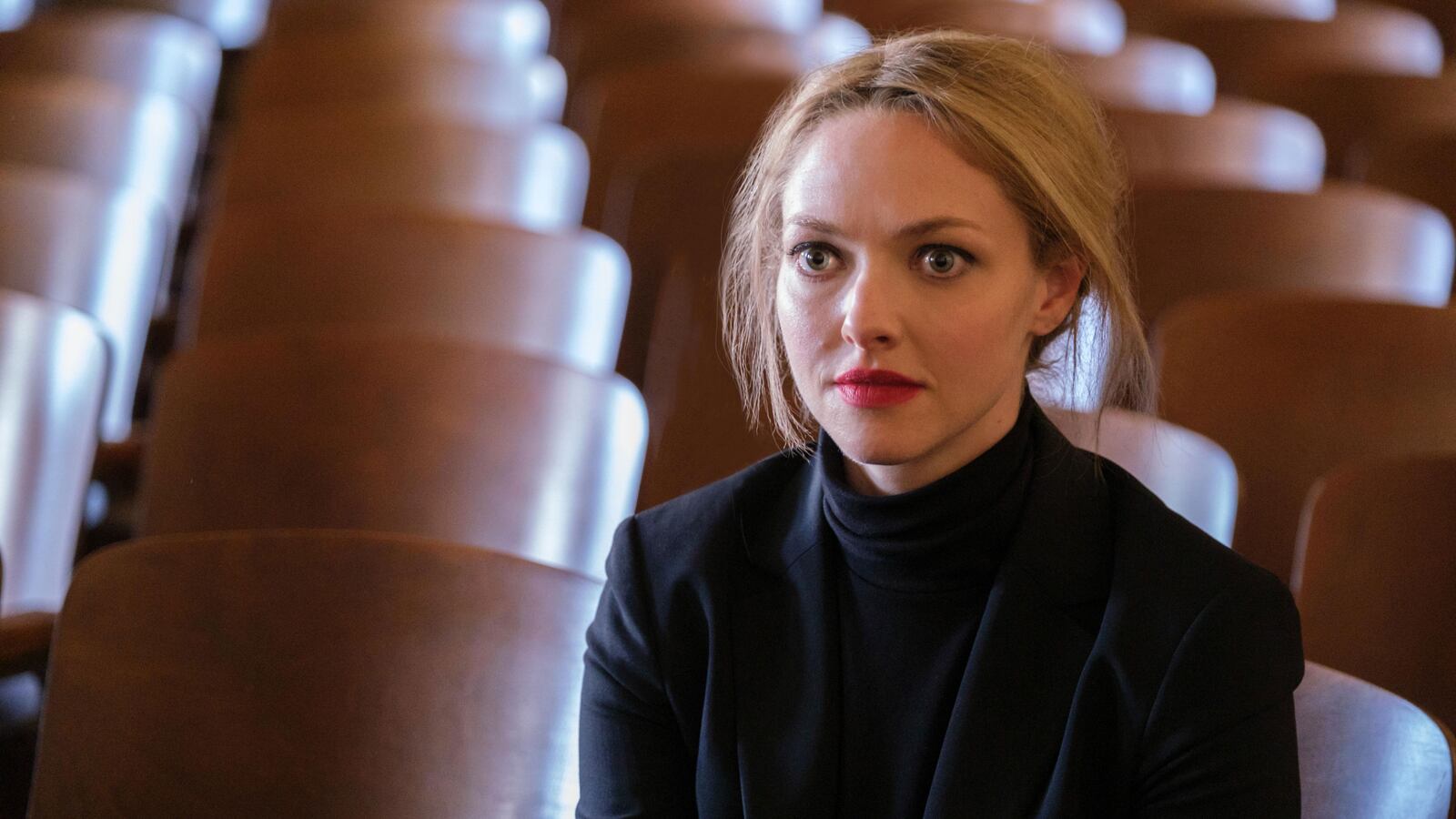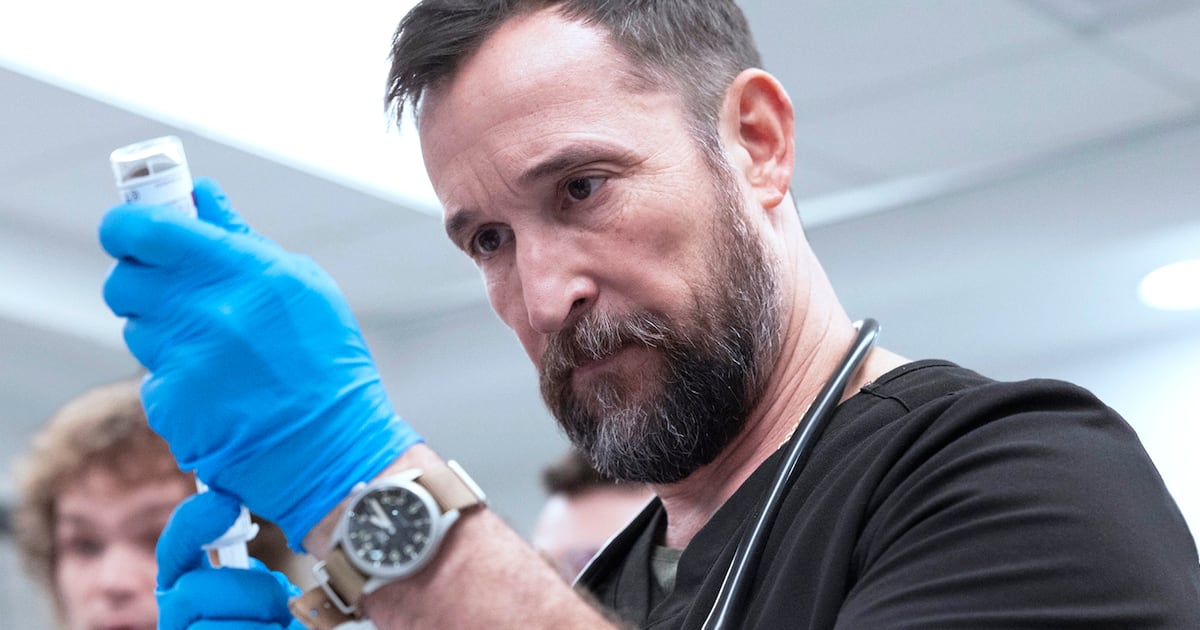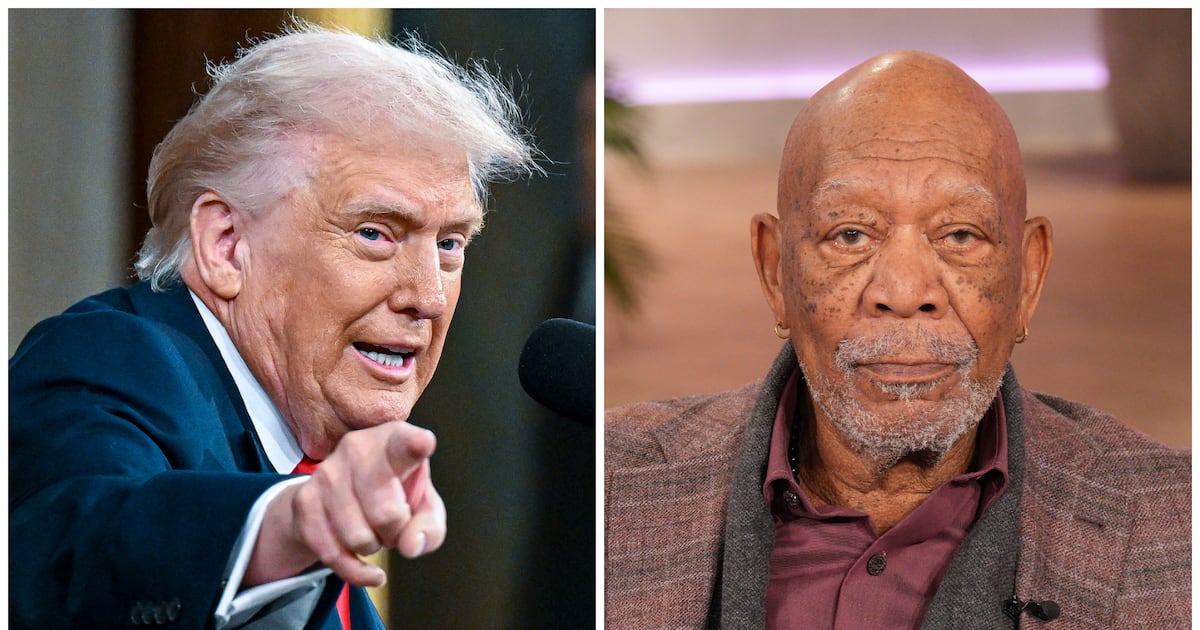When I hit “play” on The Dropout, the new Hulu drama documenting the rise and fall of Elizabeth Holmes, I thought I was prepared for the atrocities ahead. There would obviously be rampant fraud, as the CEO’s team provided inaccurate blood test results to real-life people, including cancer patients. I’d also braced for the uncomfortable romance between Holmes and Ramesh “Sunny” Balwani—who was already an adult in his thirties when he met the rising college freshman while she was studying in Beijing. And of course, I was ready (extremely eager, in fact) to hear Amanda Seyfried’s take on “The Voice.”
I had not, however, accounted for the amount of atrocious dancing we’d see in this series.
It starts with a covert scene in Holmes’ childhood bedroom, where the future Stanford dropout and tech “visionary” runs in place, leaps around, and jabs the air with her fists while listening to Alabama’s “I’m in a Hurry (and Don’t Know Why)” and staring at a poster of Steve Jobs. Scenes like these punctuate the series, as Holmes awkwardly gyrates to songs like Missy Elliott’s “We Run This” and Lil Wayne’s “How to Love”—like a Girlboss Icarus boogieing her way straight toward a burning, blood-red sun.
It’s little touches like these that make The Dropout a refreshing delight. The 2022 streaming landscape is drowning in scammy stories like these: Netflix has Inventing Anna, Showtime has the Uber tell-all Super Pumped, Apple TV+ will soon debut its WeWork yarn, WeCrashed. As she crafted her take on Elizabeth Holmes, showrunner Elizabeth Meriwether was on the hunt for human details that could inform a deeper story—an angle that those of us who pored over the story in the news for months had not already seen before.
One that jumped out immediately? The time a Theranos colleague caught Holmes getting her groove on to a hip-hop song in her car one morning.
“That really stuck in my head, because it felt like, ‘Oh, that’s something that she does when no one is looking,’” the New Girl creator told The Daily Beast during a recent interview. “I kind of built on that one anecdote and tried to kind of make it a thing throughout the series.”
The Dropout is a departure for Meriwether, best known for her long-running Fox rom-com starring Zooey Deschanel. (“None of the characters on New Girl have been convicted of fraud,” she snarked with a laugh. “It definitely was a new thing for me.”) But her knack for balancing empathy and schadenfreude are a perfect match for the project, which adapts Rebecca Jarvis’ ABC News podcast of the same name into a full-blown character study. (That car anecdote, Meriwether noted, came up in the pod.)

Elizabeth Meriwether attends a TCA Studio Day hosted by Twentieth Century Fox Television at Sunset Ranch Hollywood on July 28, 2019, in Los Angeles, California.
David Livingston/GettyWhen Searchlight Television first approached her to work on the project, Meriwether admits she was a little skeptical. “I was just like, ‘What is the point of doing a limited series?’” she said. “Why would we tell this story again? What would I bring to it?”
The solution, she decided, would be to “engage with the story on a more human level.” That started by recognizing an impostor-syndromey fragment of her own backstory that she shared with the convicted fraudster.
“I created New Girl when I was 29, and I’d never worked in television before and was suddenly running a show managing 200 people,” Meriwether said. “I was very in over my head in the beginning of it.”
The similarities pretty much end there; Meriwether never, say, slapped her name on patents for inventions she played no part in creating. But in Holmes’ biography, the showrunner said, she saw “the story of a young woman in a position of power really kind of struggling with it and trying to figure out who she is in the middle of that.”
“That felt like a story that hadn’t been told as much on television,” she said. “You know, it’s not the kind of glossy girlboss, female empowerment version of a female CEO.”
The specter of the dreaded “girlboss” looms large over The Dropout. With each passing episode, one observes Seyfried’s character grappling with the way various (inevitably male) gatekeepers treat her as an ambitious female entrepreneur. Her skeezy neighbor (William H. Macy) can’t stand the idea that she considers herself smarter than him, and most men she approaches in her early career seem incapable of speaking to her without invoking a tone that might as well be a verbal pat on the head.
Over time, the show’s Elizabeth figures out how to harness her industry’s tokenization of women to her advantage—a brilliant encapsulation of the way that women, too (especially white women), can perpetuate misogyny once they decide it’s to their advantage to do so.
The Dropout spans decades, which presents some challenges. (Try as she might, even a performer as talented as Seyfried cannot convince viewers that she is a high school senior.) But the show also takes advantage of its longevity in another department: Music might not seem integral to the story of a tech start-up, but this show’s soundtrack is among the best in recent memory.
As Meriwether put it, “The music was really important to me as a way of taking us through time.” She pored over her own favorites from the show’s various time periods and credits music supervisor Maggie Phillips for supplying nothing but bops. “I was always trying for something that would take you back to that moment, but not something that you’d heard so many times,” she said.
And while Seyfried might struggle as much as any actor would with the Dear Evan Hansen gambit required of her in the beginning of the series, it’s hard to imagine any other performer nailing the character with such ineffable strangeness. It’s not just her impossibly wide eyes, which telegraph ambition and uncertainty in equal measure. The Mamma Mia! actress manages to work her character’s psychological turmoil into every element of her physicality—stiff shoulders, a quivering mouth, and, yes, dancing that looks like she’s fighting off an invisible swarm of bees.
In Seyfried’s hands, Elizabeth Holmes seems painfully relatable one moment (like when she’s embarrassing herself by dancing in the car or spilling coffee on her shirt ahead of a big meeting) and chillingly inhuman the next. Much like Elisabeth Moss’ unforgettable, furious up-to-camera stares in The Handmaid’s Tale, the image of Seyfried’s conflicted gaze into the camera against a white backdrop now feels permanently burned into my memory (along with the dancing).
Among Seyfried’s greatest talents as an actress, Meriwether said, is her ability to hold space for the comedy and the drama at the same time—a rare gift among actors.

Elizabeth Holmes (Amanda Seyfried) and Sunny Balwani (Naveen Andrews) in The Dropout
Beth Dubber/HuluSeyfried’s co-star, Lost alum Naveen Andrews, matches her intensity as Sunny Balwani—whose relationship with young Elizabeth feels uncomfortable from the start and only grows more troubling from there. Sayid Jarrah was among Lost’s gentler souls—but as Sunny, Andrews embraces the opposite end of the emotional spectrum. His character is imposing, filled with repressed rage that he mostly expresses through the occasional violent outburst and, more often, lording over his paramour. (Something no one likely had on their bingo cards going into The Dropout: Elizabeth Holmes’ fraught relationship with green juice becomes a surprisingly efficient metaphor for the darkness underpinning her romantic life.)
The romance between Balwani and Holmes was among the most creatively dramatized, Meriwether said, because the couple kept their private affairs so well hidden.
“There’s so little information about what that relationship actually was—which, you know, was part of their relationship because they kept it secret for 12 years,” she said. “It felt like such a huge part of the story that we knew very little about. We learned more in her trial, and I think we’re going to learn even more in his trial, which is coming up. But it’s a really complex, toxic relationship.”
As much depth and versatility as Seyfried brings to her role, I did have to ask the inevitable superficial question before Meriwether and I hung up: How does a soprano drop her voice into Elizabeth Holmes’ fake baritone?
“I don’t know how she did The Voice,” Meriwether replied with a laugh. “She came to the rehearsal and sat down at the table and had The Voice. I was like, ‘Whatever you did, this is amazing.’”
“It wasn’t that important to me that it was, like, exactly right,” Meriwether added. “I think I was much more interested in her making it her own… If the voice were really funny the whole time, I think it would really have taken away from the emotional stakes of the story.”
As told by The Dropout, Holmes’ is a story of an ambitious oddball whose dreams became an escape from uncomfortable realities—from her family’s apparent financial precariousness, from her social awkwardness, from a sexual assault she allegedly endured in college, and from countless other unknowable fears that might’ve never made it into a news investigation or a podcast.
It’s fitting, then, that Meriwether shared just one more anecdote from Jarvis’ original podcast that stuck with her, a vignette that made it into the premiere: Holmes at 11 years old, running on the track even after it was clear she’d already lost. “Even though every other runner had already finished the race… she just won’t quit.”







